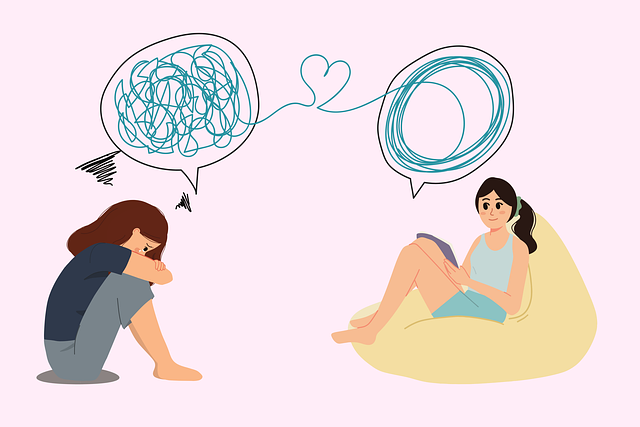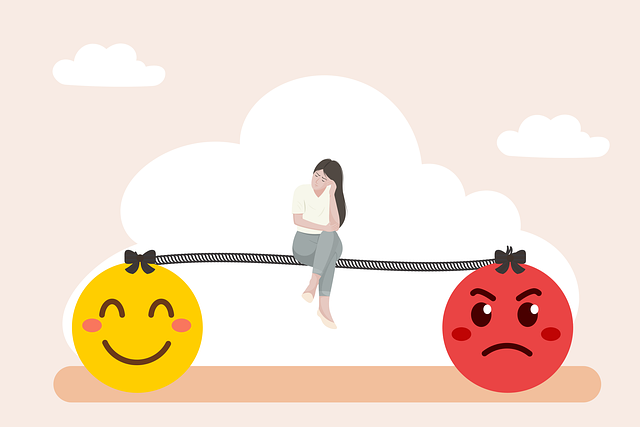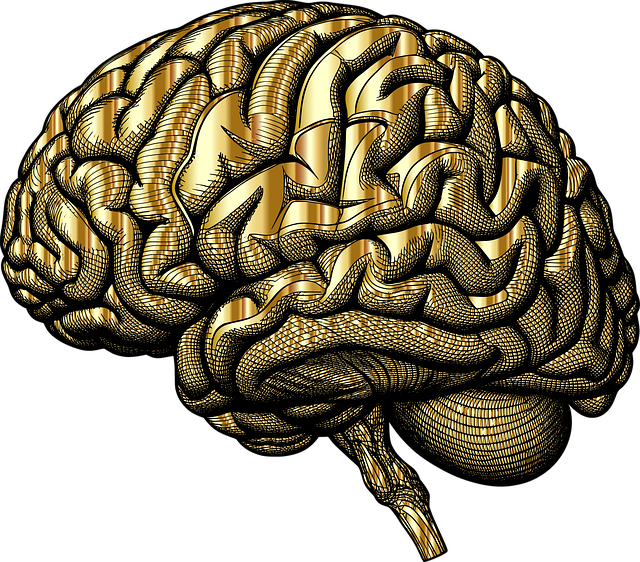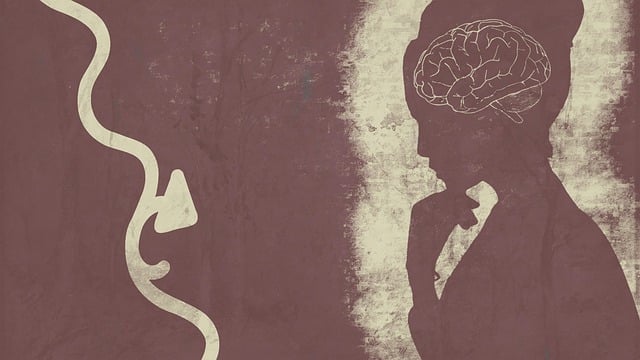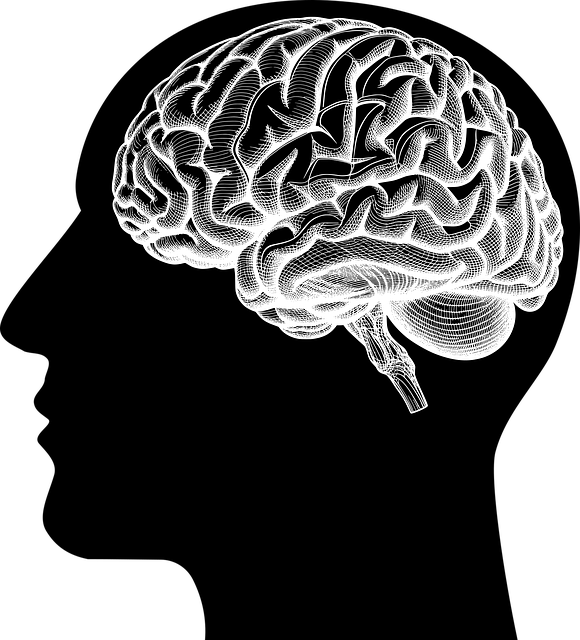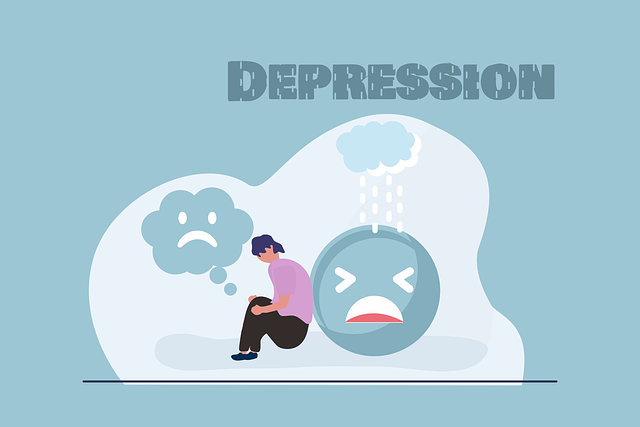Louisville phobias therapy leverages evidence-based approaches like Cognitive Behavioral Therapy (CBT), mindfulness meditation, and exposure therapy to effectively manage anxiety disorders. CBT equips patients with tools to challenge negative thoughts, reduce symptoms, and improve mood regulation. Mindfulness practices promote present-moment awareness, helping individuals accept emotions without judgment. Exposure therapy gradually confronts fears in controlled settings, building emotional control and enhancing well-being. Lifestyle changes, including exercise, diet, and sleep, along with coping skills developed through therapy, significantly improve mental health and quality of life for Louisville phobias therapy clients.
Anxiety disorders affect millions, causing overwhelming fear and distress. If you’re living with anxiety in Louisville, know that help is available. This guide explores effective anxiety management techniques, from cognitive behavioral therapy (CBT) and mindfulness practices to exposure therapy and lifestyle changes. Discover how these evidence-based approaches can empower you to take control, reduce symptoms, and enhance your quality of life.
- Understanding Anxiety Disorders and Their Impact
- Cognitive Behavioral Therapy (CBT): A Powerful Tool
- Mindfulness and Meditation for Calmness
- Exposure Therapy: Facing Your Fears
- Lifestyle Changes for Better Mental Well-being
Understanding Anxiety Disorders and Their Impact

Anxiety disorders are a prevalent mental health concern, affecting millions worldwide. They encompass various conditions such as generalized anxiety disorder (GAD), panic attacks, specific phobias, and social anxiety, each with its unique manifestations. Understanding these disorders is crucial in Louisville phobias therapy, where professionals aim to help individuals manage and overcome their fears and worries. The impact of anxiety can be profound, affecting daily functioning, relationships, and overall quality of life.
Recognizing the symptoms and seeking appropriate treatment early on is essential. Techniques like mindfulness meditation have gained popularity as effective tools for managing anxiety. Additionally, community outreach programs can play a significant role in raising awareness, reducing stigma, and providing support networks for those struggling with anxiety disorders. Risk assessment for mental health professionals is also vital to ensure they are equipped to handle these complex conditions effectively.
Cognitive Behavioral Therapy (CBT): A Powerful Tool

Cognitive Behavioral Therapy (CBT) is a highly effective and widely recognized approach to managing anxiety, including various phobias. Louisville phobias therapy utilizing CBT has gained popularity due to its ability to empower individuals to take control of their thoughts and emotions. This therapy technique focuses on identifying and changing negative thought patterns that contribute to anxiety and fear. By modifying these cognitive distortions, CBT helps individuals develop healthier coping mechanisms and improve their overall mood management skills.
One of the key strengths of CBT lies in its practical and structured nature. It teaches patients specific tools and strategies to confront and overcome anxiety-provoking situations. This evidence-based method has been extensively studied and proven successful in reducing symptoms of various mental illnesses, including anxiety disorders. Moreover, CBT contributes to mental illness stigma reduction efforts by promoting understanding and self-acceptance, ultimately fostering a more supportive environment for individuals seeking anxiety relief.
Mindfulness and Meditation for Calmness

Mindfulness and meditation have emerged as powerful tools in managing anxiety, offering a calming antidote to the chaos that often accompanies anxious thoughts. These practices, deeply rooted in ancient philosophies, encourage individuals to focus on the present moment, observing their thoughts and emotions without judgment. By cultivating mindfulness, Louisville phobias therapy clients can learn to disengage from negative thought patterns and reduce the intensity of anxiety symptoms.
In a culture that values constant connectivity, mindfulness provides an opportunity for mental respite. Social skills training and stress reduction methods, often integrated into holistic approaches to mental healthcare, benefit greatly from cultural sensitivity in practice. Meditation techniques tailored to diverse populations can help individuals from various backgrounds feel more at ease, fostering inclusive spaces where everyone can find tranquility and support.
Exposure Therapy: Facing Your Fears

Exposure therapy is a powerful technique used to manage anxiety and phobias, offering a direct approach to facing and overcoming fears. This therapeutic method involves gradual and controlled exposure to situations or objects that trigger anxiety, allowing individuals to confront their worries in a safe environment. By repeatedly confronting these fears without experiencing harm, patients can learn to regulate their emotional responses and gain a sense of control.
For instance, someone with arachnophobia (fear of spiders) might start by viewing images of spiders, then progress to observing them from a distance, and eventually, interact with live spiders under professional supervision. This process helps individuals realize that their feared objects are not as threatening as they once believed, leading to improved mood management and emotional well-being promotion techniques over time. Louisville phobias therapy utilizes exposure therapy to help patients overcome specific fears, ultimately enhancing their ability to regulate emotions and manage anxiety in various situations.
Lifestyle Changes for Better Mental Well-being

In navigating Louisville phobias therapy or managing anxiety, lifestyle changes play a pivotal role in enhancing mental well-being. Engaging in regular physical activity, adopting a balanced diet, and prioritizing quality sleep are foundational practices that can significantly reduce anxiety levels. Exercise releases endorphins, naturally boosting mood and promoting relaxation. A nutritious diet fuels the body and brain, supporting overall mental health. Moreover, consistent rest patterns help regulate hormones related to stress, fostering better emotional balance.
Integrating mindfulness techniques, such as meditation or deep breathing exercises, into daily routines offers another layer of crisis intervention guidance. These practices cultivate awareness and present-moment focus, helping individuals detach from anxious thoughts. Developing coping skills through therapy sessions equips individuals with effective strategies to manage and overcome anxiety-inducing situations. Louisville phobias therapy, combined with these lifestyle shifts, can lead to profound improvements in mental health awareness and overall quality of life.
Anxiety disorders are common, but manageable with the right techniques. This article has explored effective strategies like Cognitive Behavioral Therapy (CBT), mindfulness, exposure therapy, and lifestyle changes, all proven to reduce anxiety symptoms. For personalized support in Louisville phobias therapy, consider seeking help from a mental health professional. Remember, taking control of your mental well-being is the first step towards living a calmer, more fulfilling life.




